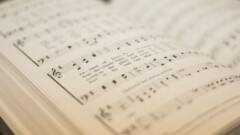Do I have a library made up of thousands of books or do I have a library made up of a couple dozen? I suppose it depends on what you count as a book. It has been many years—at least 15, I think—since I decided to go all-in with ebooks, a decision I have stuck with. Today I’ve got 20 or 30 printed books in my collection and many thousands in electronic formats.
So far I have not had any significant regrets. I may have the occasional wistful thought about the feel or smell of a hardcover book, but they quickly dispel when I sit on a plane, take out my iPad, and have access to every book I own at 30,000 feet in the air. They dispel when I consider that I live in a small house and simply don’t have the space for a substantial library. And they dispel as well when I consider the price difference between a book printed on paper and a book that takes no physical form (not to mention the vast number of books I’ve been able to acquire for no more than a couple of dollars through daily Kindle deals and regular Logos sales and freebies).
My general strategy has been to collect commentaries and reference works in Logos format and other resources in Kindle format. Hence, if I am preparing a sermon, I am probably using Logos and if I am reading a book for pleasure or review, I am probably using my Kindle. Occasionally I’ll use both of them. Of course I wish there was a way to connect and integrate the two libraries, but unfortunately both depend upon proprietary formats. The highlights of my reading make their way quickly and smoothly into My System for Remembering and Re-Encountering What I Read.
When I first went all-in with ebooks, reading electronically was still quite novel. Amazon’s Kindle was a relatively new device and while Logos had a more substantial track record, it still seemed risky to forgo the security of a printed commentary for an electronic one. My most substantial concerns were censorship on Amazon’s part and bankruptcy on Logos’ since either could quickly make me regret my decision.
To this point, though, neither concern has come to fruition. While Amazon has had a couple of stumbles when it comes to censorship (most notably and ironically by removing Orwell’s 1984 from some people’s accounts in 2009), they have not stopped publishing books that counter society’s prevailing winds. It seems to me that we may have already passed through peak corporate Woke, which makes it unlikely that deeper censorship is on the immediate horizon. I take this to mean that the kind of books I want to collect are likely to remain in my library and likely to remain for sale on Amazon.
Meanwhile, Logos has remained steady and viable. They have recently changed their revenue model from purchase to subscription which, as much as many of us don’t love the idea of another monthly fee, should offer them greater financial stability while providing customers with more timely improvements and updates. They also continue to offer pretty much all of the commentaries and reference works that are meaningful to me, all nicely integrated into their powerful system.
I freely admit that neither Amazon nor Logos are entirely risk-free and that neither is too big to fail. That said, nothing in this world is risk-free and even the safest printed library is still prone to fire, flood, and a host of other concerns. It’s never a matter of eliminating risks but of mitigating risks while balancing risks with benefits.
Some people are concerned about bequeathing an electronic library to other people as they may do with a physical library. While I have not yet had to consider this with Kindle, I can attest that when my son passed away, it was simple (and meaningful) to transfer the ownership of his Logos account to one of his friends from seminary. Logos has a procedure for this and is glad to do it. Meanwhile, anyone who shares my Amazon account has access to all of the books connected to it, so at the very least my wife and daughters can access them in perpetuity.
I would never say that electronic libraries are right for everyone or the best option in every situation. I would never say they are without drawbacks. Yet, many years after making the shift, I would say that it was right for me and that I am glad I did it.










